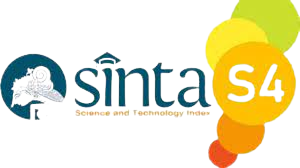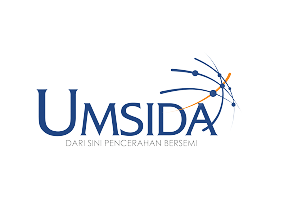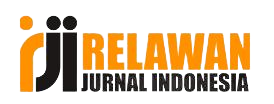Women's Role: Between Opportunities And Challenges in Business in The Era of The Industrial Revolution 4.0
Peran Perempuan: Antara Peluang Dan Tantangan Dalam Bisnis di Era Revolusi Indus Tri 4.0
DOI:
https://doi.org/10.21070/jkmp.v10i1.1680Keywords:
Women's roles, opportunities, businessAbstract
Opportunities, opportunities and challenges for women to develop their potential today are increasingly open. Supported by the motivation of women to work, study and entrepreneurship like men without forgetting their nature as a woman is getting stronger. The opportunities that are already available need to be supported by the improvement of human resources itself. To be able to compete in the world of work, education and skills are needed. The higher a person's education, the value of time becomes more valuable so it tends to replace his spare time for work. The low participation of women in the field of education results in the low participation of women in the economy. This can be shown by the low opportunity for women to work in the industrial sector, as well as the low access to economic empowerment, including capabilities in technology, information, working capital markets. : between opportunities and challenges in business in the 4.0 industrial revolution era. This study uses a descriptive qualitative method. Data collection techniques through observation, interviews and documentation. Data processing is done through editing, coding and interpretive. The data analysis technique used is through data reduction, data presentation, and drawing conclusions. The results of the research, the role of women is an opportunity to play a strategic role, namely as domestic and public. The role of women as well as opportunities in business in the era of the industrial revolution 4.0 is not enough to take part only as housewives, but is also required to be able to take part in family businesses and in the career world. Constraints faced by women are lack of understanding of technology, lack of digital literacy, due to low educational background.
References
Abercrombie., Hill, N. S., Turner, Bryan. S. (2010). Kamus Sosiologi. Yogyakarta: Pustaka Pelajar
Hubeis, A. V. S. (2010). Pemberdayaan Perempuan dari Masa ke Masa. IPB Press.
El-Saadawi, Nawal. (2003). Wajah 2003 Telanjang Perempuan.Yogyakarta:Pustaka Pelajar Press
Goode, W. J. 2008. Sosiologi Keluarga. Jakarta: PT Bumi Aksara.
Jane C, O., & Moore, H. A. (1996). Sosiologi Wanita. Jakarta: PT. Rineke Cipta.
Creswell, J. (1994). Research Desgin, dalam Ulber Silalahi, Metode Penelitian Sosial. Bandung: PT. Refika Aditama.
Mosse,J. C. (2007). Gender dan Pembangunan.Yogyakarta: Pustaka Pelajar.
Khairuddin. (2002). Sosiologi Keluarga. Yogyakarta: Liberty.
Miles, M. B. & Huberman, A. M. (1992). Analisis Data Kualitatif (terjemahan Tjetjep Rohendi Rohidi). Jakarta: Universitas Indonesia Press
Moleong, L. J. (2002). Metodologi Penelitian Kualitatif. PT. Remaja Rosdakarya.
Pofil Data Ketenagakerjaan Umum Provinsi. (2014). Pusdatinaker, Balitfo, Kemenakertrans 2014
Profil Perempuan Indonesia. (2019). Kementrian Pemberdayaan Perempuan dan Perlindungan Anak Republik Indonesia.
Saptari, Ratna, & Brigitte, H. (1997). Perempuan Kerja dan Perubahan Sosial: Sebuah Pengantar Studi Perempuan. Kalyanitra.
Tjiptoherijanto, P.(1997).Migrasi,urbanisasi,dan pasar kerja di Indonesia. Jakarta:Penerbit Universitas Indonesia.
Undang-undang Dasar Negara Republik Indonesia Tahun 1945
















